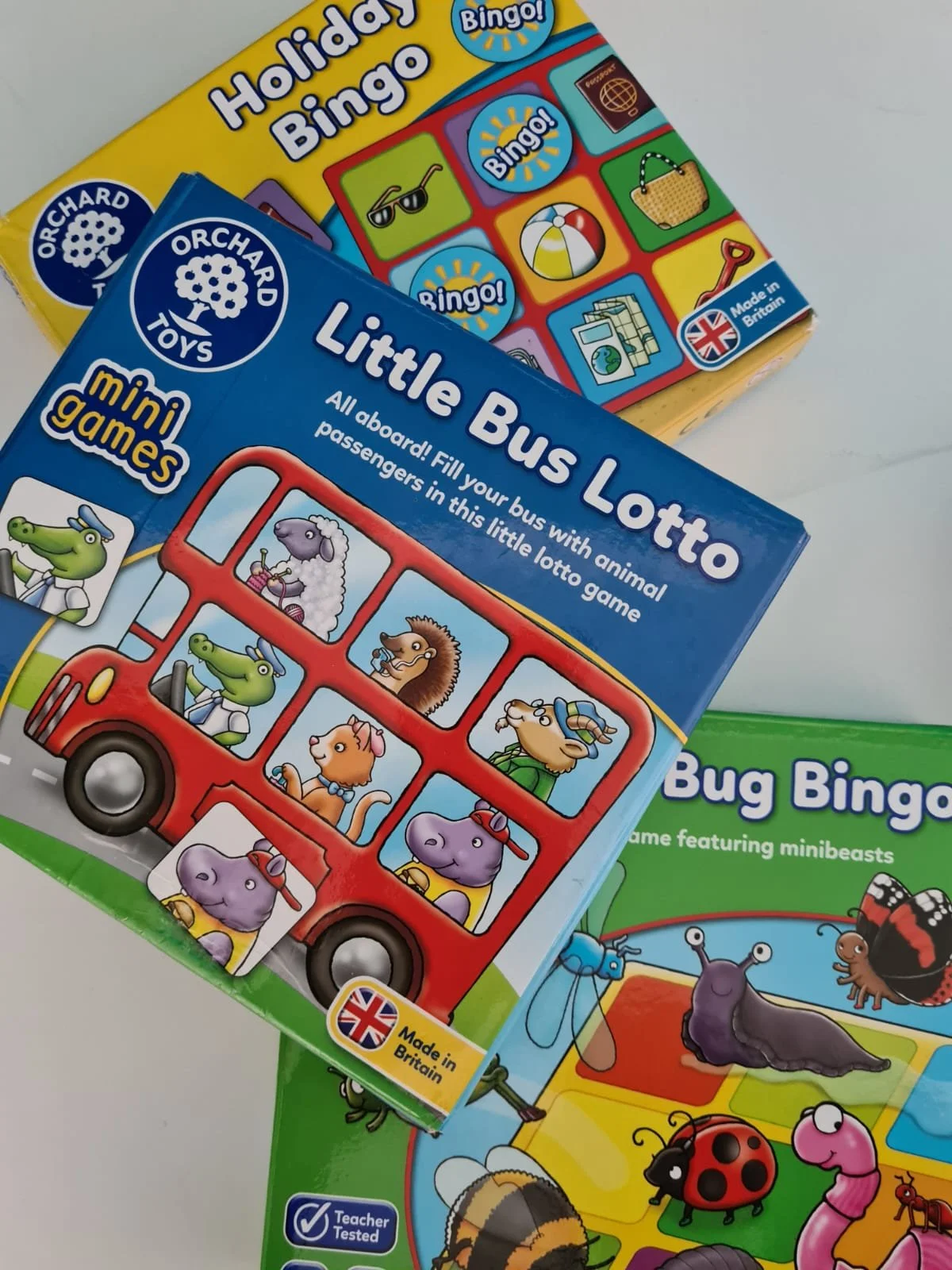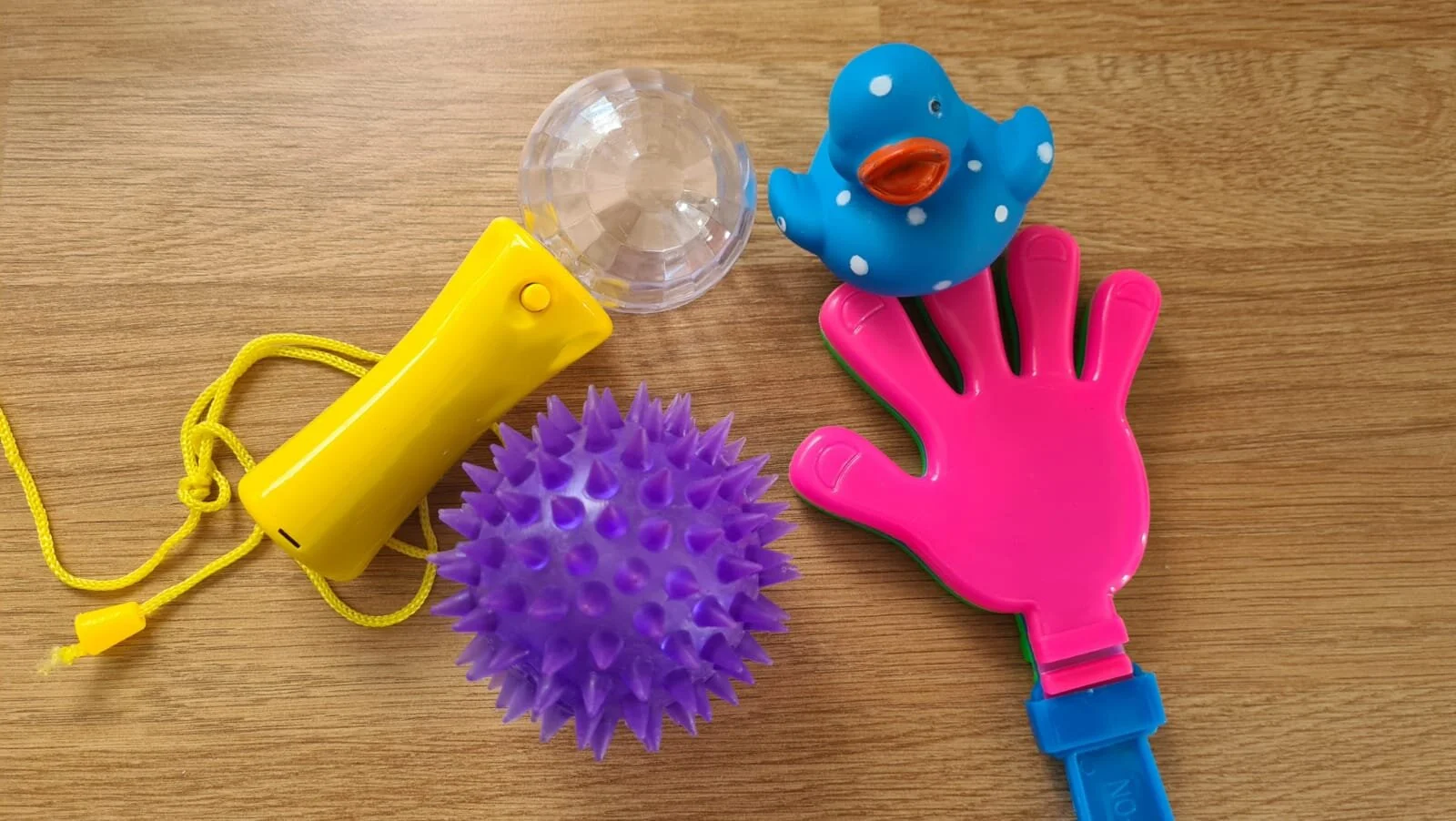Christmas - the season of joy, festivities, and, let's be honest, a touch of chaos. As parents, we've all been there, juggling the demands of the season while trying to keep our cool. Why is it that the most wonderful time of the year often comes with a side of emotional turbulence, especially for our little ones?
Read MoreAs things start to edge back to normality, parents are understandably anxious about how the pandemic has affected their young children’s development in many areas. One of the most concerning for parents is the impact on the development of their social communication skills.
Read MoreWe are big fans of Orchard Games in our house. We have quite a few and both oF my girls have really enjoyed playing the games.
If you haven’t tried them out yourself, the Orchard Games range has a variety of simple, structured games for playing with young children. Everything from lotto to shopping!
Read MoreAttention and listening skills are the bedrock of language development and allow us to learn other skills. Learning to focus is a really important part of early development that helps us to listen to others and engage in shared activities. But how can we help our children to develop their attention skills?
Read MoreI have read several articles about how modern children are ‘over scheduled’ with a plethora of structured activities and clubs and that modern children need more time for unstructured and outdoor play. Kids can become overtired when they are engaging in too many sports and clubs and need the less structured playtime to develop their imagination, communication and negotiating skills.
This all sounds reasonable but how do you know how many activities to choose, when is it too much?
Read MoreSeparation anxiety is a natural part of childhood development. Often, separation anxeity first kicks in when a baby is about six months old and can be a relatively regular occurrence throughout their toddler years. However, at times of significant change such as starting school, moving home, a new baby in the family or having a new nanny can bring the anxiety back to the surface.
Read MoreFingerplays (action songs) are a tool widely used at home and in early years settings. These songs are a wonderful way to support early development in a number of areas.
Read MoreLearning to listen is an important foundation for later development. This is particularly true for speech and language development. Being able to hear the difference between different sounds is an important first step. Then tuning into the language used by others to understand it, learn from it and copy it. As with so many skills, starting early and building in lots of practice makes all the difference. Try these tips to get your baby engaged in early listening.
Read MoreAttention and listening skills are the foundation skills on which communication and learning can be build. So, it’s a bit of a no-brainer that supporting the development of these skills needs to be top priority. If we focus on these first, then the support we give to other areas is likely to be more successful. There are lots of skills and approaches that can be used in helping young children to learn how to attend and listen to others. Attention buckets are one of my favourites. They are fun and super engaging, plus, they work! What more could we want, right?
Read MoreHelping children to practise their listening skills doesn’t need to be a major chore. In a blog ‘Getting Little Ones to Listen’ I share my top tips for supporting early listening. One of those tips is that practise makes perfect. Like any skill, the more we have opportunities to focus on and develop a skill the more likely we are to master and maintain it. Regular fun games are a great way to improve listening.Am I the only one who feels a little like we are living in an alternate universe? Life feels a little like my normal life, same family, same home and yet somehow everything is entirely different. To be honest I have taken a little time to adjust and settle into a new routine. I needed about 10 days to find a groove that worked for both my family and I. As a result, this blog was written a full 2 weeks after I had planned to write it.
Read MoreCommunication is a two-way exchange, back and forth. When chatting with adults we are better at giving each other a little space to speak (unless in the full flow of an argument or exciting tale). With young children we have a tendency to fill all of the communication time, when really we are aiming for 50/ 50. The grown up speaks or leads for half of the time and the child can respond or take the lead for the other half.
Read MoreEarly language development is supported by a child’s experiences. The first words they use tend to be related to objects and people they see most often. By choosing toys which reinforce this vocabulary, we give children a better chance of learning these words
Read MoreThere is a trap we sometimes fall into when enabling children with SEN to communicate – we introduce tools that they can use with an assigned adult or a small selection of adults. This is very helpful for getting children’s basic needs met. However, it does not give them access to a wider community or to a peer group. The tools themselves are great; it is the implementation that’s flawed.
Read MoreIt is never too early to start reading with your child. Long before a baby is able to talk or is even seeming to take notice of what you are saying, they are still benefiting from being read to. Here’s how.
Read MoreOne of the key early cognitive skills that babies develop is object permanence. This is their understanding that an object still exists, even when they cannot see it. This understanding can begin to develop from 4 months and is often seen between 4 and 7 months old. You might first notice your child is developing this skill when they look for things they have dropped from the buggy or highchair. Here are some toys and games to support babies in developing their understanding of object permanence.
Read MoreAt primary school level there tend to be three types of school settings available for children with special educational needs; mainstream primary schools, schools with specialist classes/units and specialist schools. Choosing which type of school is most suitable for your child can feel a little pressurised. Here is a little run down of what the different types of schools offer and the advantages of each.
Read MoreGames are great for developing early social interaction, communication and attention skills. When we play a quick game, I feel that we have been able to have a bit of quality time together, even when doing something mundane like waiting to board the plane.
Read MoreBuilding in a bit of learning whilst having fun doesn’t need to be complicated. Sometimes spending 5 minutes of focused time with a child, engaging in their play, can be enough to give them a little boost with their learning and confidence.
Read MoreOne of the great ways to enjoy playing outside is to visit local parks and play areas. We are really lucky to live in a part of England where there are lots of green spaces. Over the years we have tried and tested lots of playgrounds and gone on many day trips. Here are my favourite 3 places in East Berkshire to play outside.
Read More



















